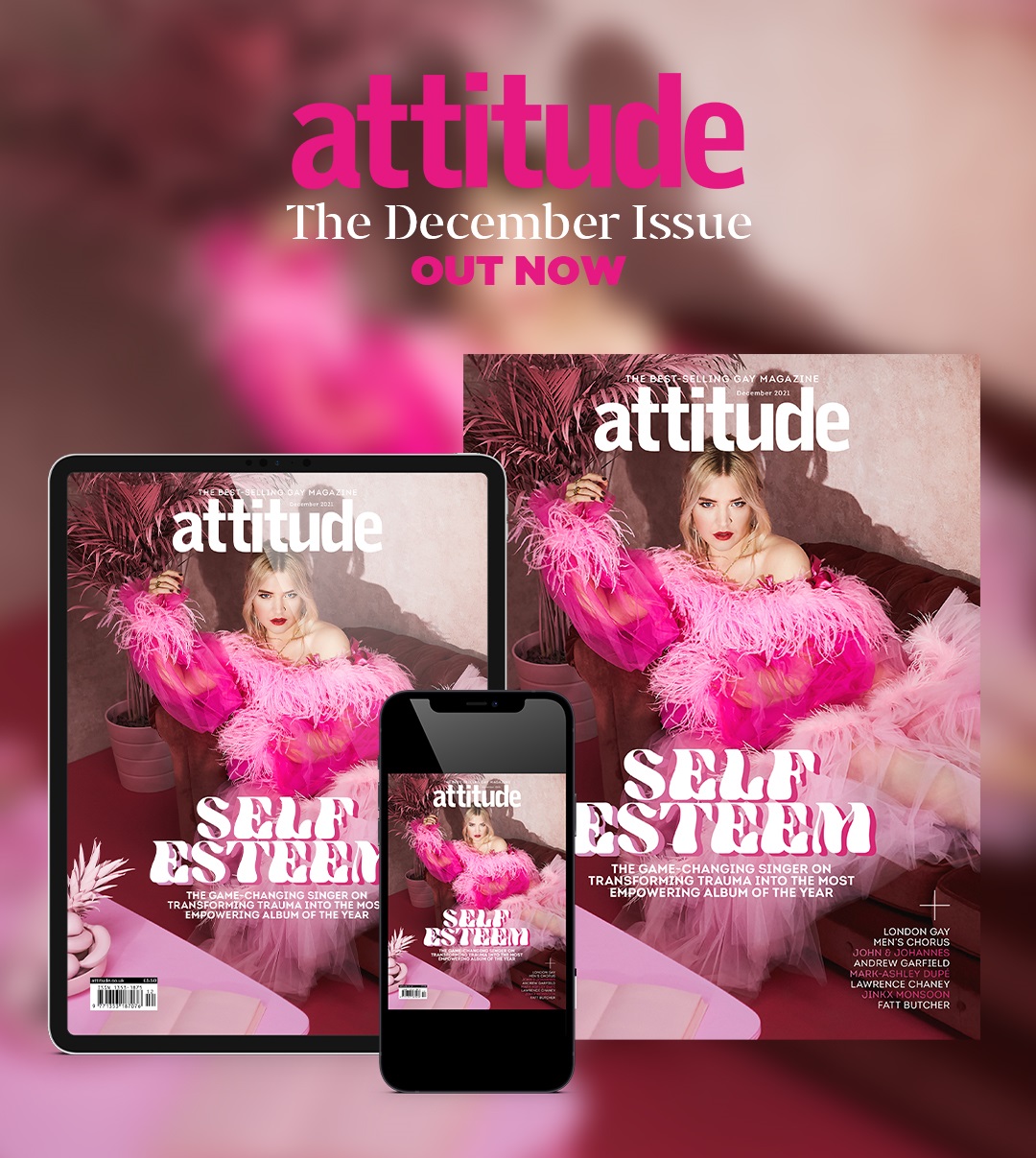Self Esteem on reclaiming her power and crushing the patriarchy with one of the year’s best pop records
The BBC Music Introducing Artist of the Year and former Slow Club singer sounds off in the Attitude December issue, out now.
By Will Stroude
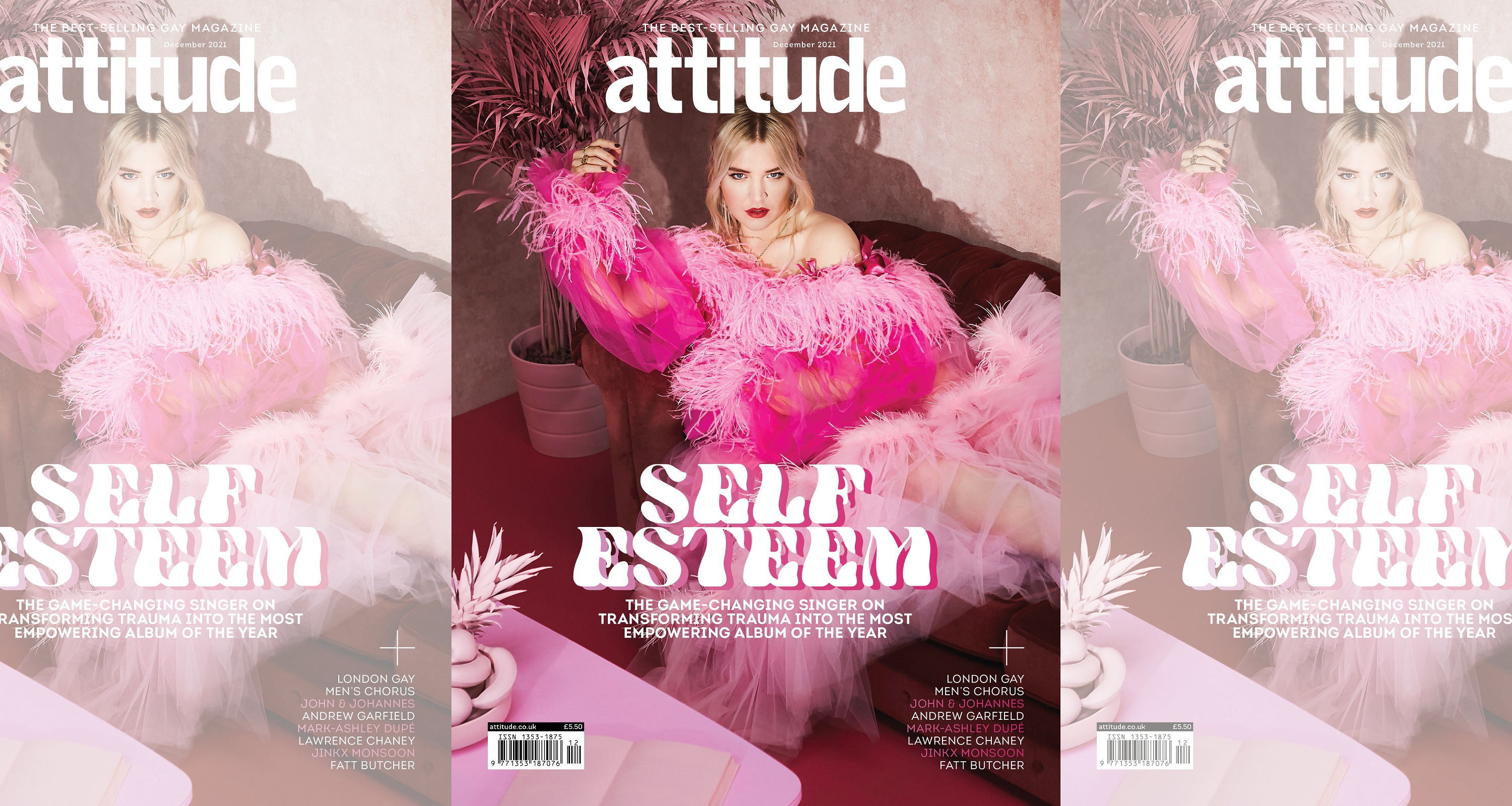
Words: Elizabeth Aubrey / additional copy by Will Stroude; Photography: Dean Ryan McDaid
In Prioritise Pleasure, Self Esteem – aka Rebecca Lucy Taylor – has made a late entry for one of the best albums of 2021.
Earning a plethora of five-star reviews, the star’s sophomore solo record, was born out of a desire to rip up the patriarchal narrative and take control of her own career after years of being creatively stifled in Sheffield indie duo Slow Club.
As a woman making music in the early noughties, the BBC Music Introducing Artist of the Year and recent Attitude Music Award winner tells the Attitude December issue – out now to download and to order globally – that she was controlled daily; from being told what to wear and what to think, and being called “difficult” for expressing a different opinion.
Taylor says “the people who run the music industry” instilled a culture of fear in her, too.
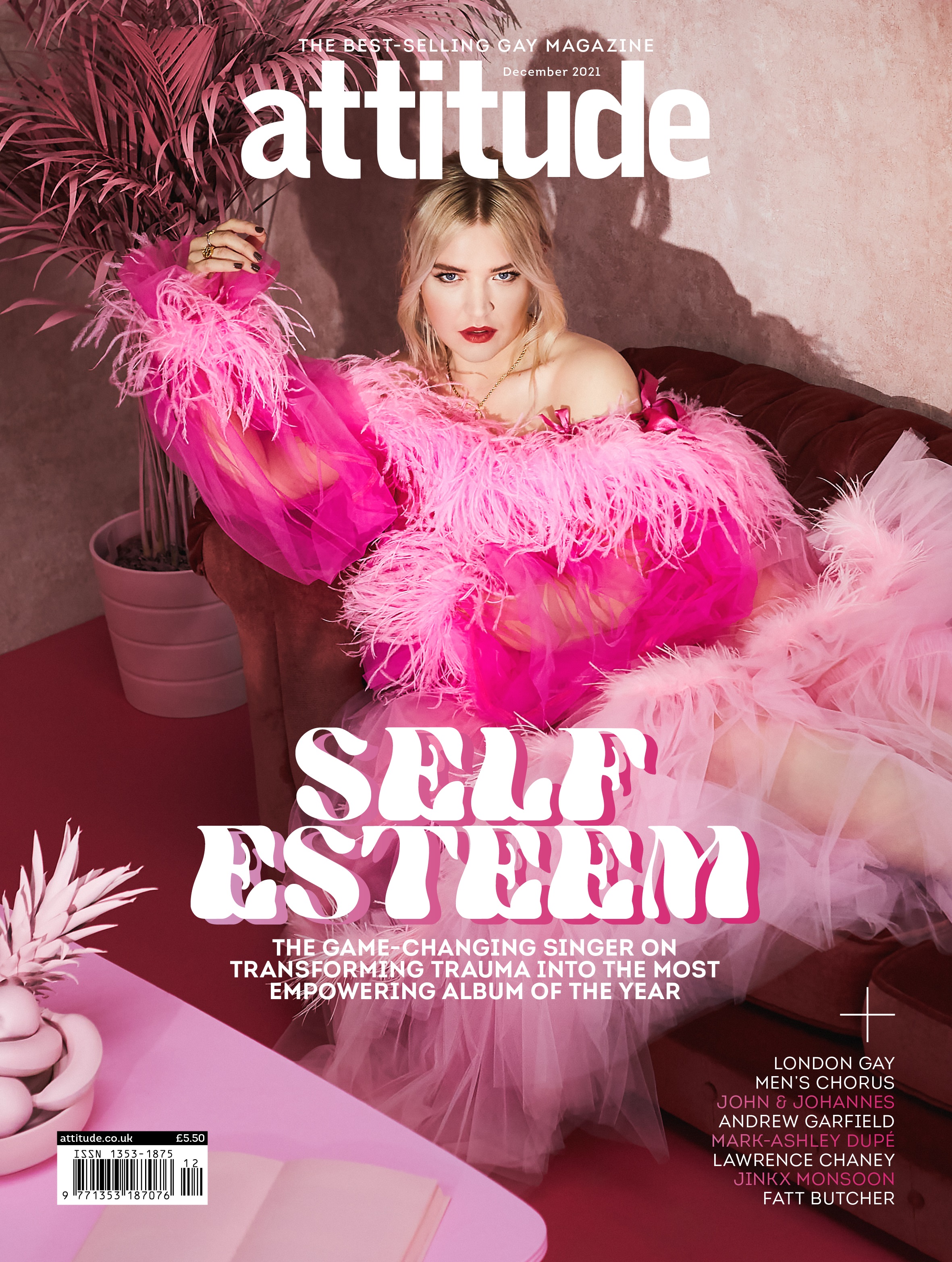
Self Esteem wears dress by Misty Couture, pendant necklace and rings by Pawnshop London for the Attitude December issue (Photography: Dean Ryan McDaid; Fashion director: Joseph Kocharian; Fashion assistant: Sacha Dance)
“There was so much of this idea that if you want it badly, you’d have to suffer for it and that’s just not true. The people who sit back and make the cash, sometimes it’s in their best interest for artists to think that. The wool was really pulled over my eyes. If I wanted it, I had to suffer – that was the message and no one bothered to say otherwise. I was always made to feel bad for complaining.”
Taylor says that the “suffering for your art” fallacy is where “the sexual assaults come in”. She continues: “That’s where the inappropriate behaviours happen. All those things that have happened to me… they all happened because I was in a world where if I’d have said anything, it would just be an annoying issue for other people to handle.”
Taylor’s life ground to an abrupt halt in 2012 when the cumulative effects of these multiple traumas resulted in mental health issues. “My life just fell apart,” she says, candidly. “It was quite a hairy time. Mental health wasn’t something people spoke about still. I remember being diagnosed with depression and I was feeling very weird about it. I lied about going to therapy,” she admits, saying she didn’t tell anyone initially.
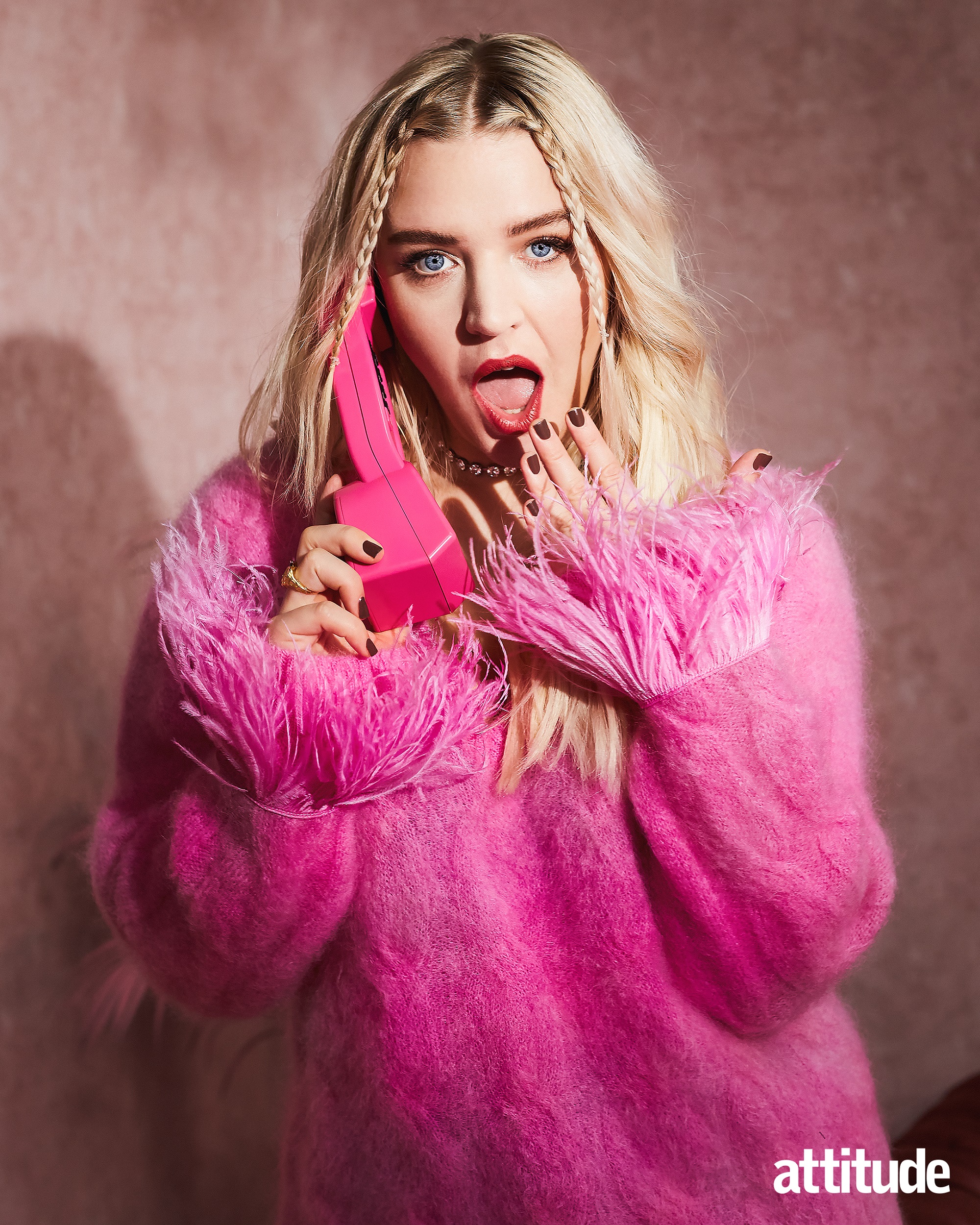
Self-Esteem wears knit by Eleonora Gottardi, necklace by PrettyLittleThing (Photography: Dean Ryan McDaid; Fashion director: Joseph Kocharian)
Years of “trial and error” with therapists followed until she eventually found the right one. “I’ve had various therapists and medications and now I’m in a much better place.”
One of the biggest changes in Taylor’s life came in 2013 when she came out to her family after years of struggling to deal with people’s reactions to her bisexuality. “People still love
to joke at the expense of your queerness,” she reflects, looking back on the many instances when people would make light of her relationships with women.
“I didn’t realise I was bisexual at first; it was a gradual realisation,” she explains. “I only really dated men, but now and again, I would sleep with women. It would always be news to the rest of the band and something about that didn’t feel right. I wanted to be private about it, so it wasn’t some great big deal, but you know, people like to joke.”
The ‘You Forever’ singer adds: “When [jokes] come from me or other queer people, amongst ourselves, I don’t mind so much, but when it’s just lads making jokes about it, it all just feeds back into the misogyny we experience as women every day.”
Taylor relates how, in 2013, she fell in love with a woman and the pair received much “unwanted attention”, the memory of which is still raw.
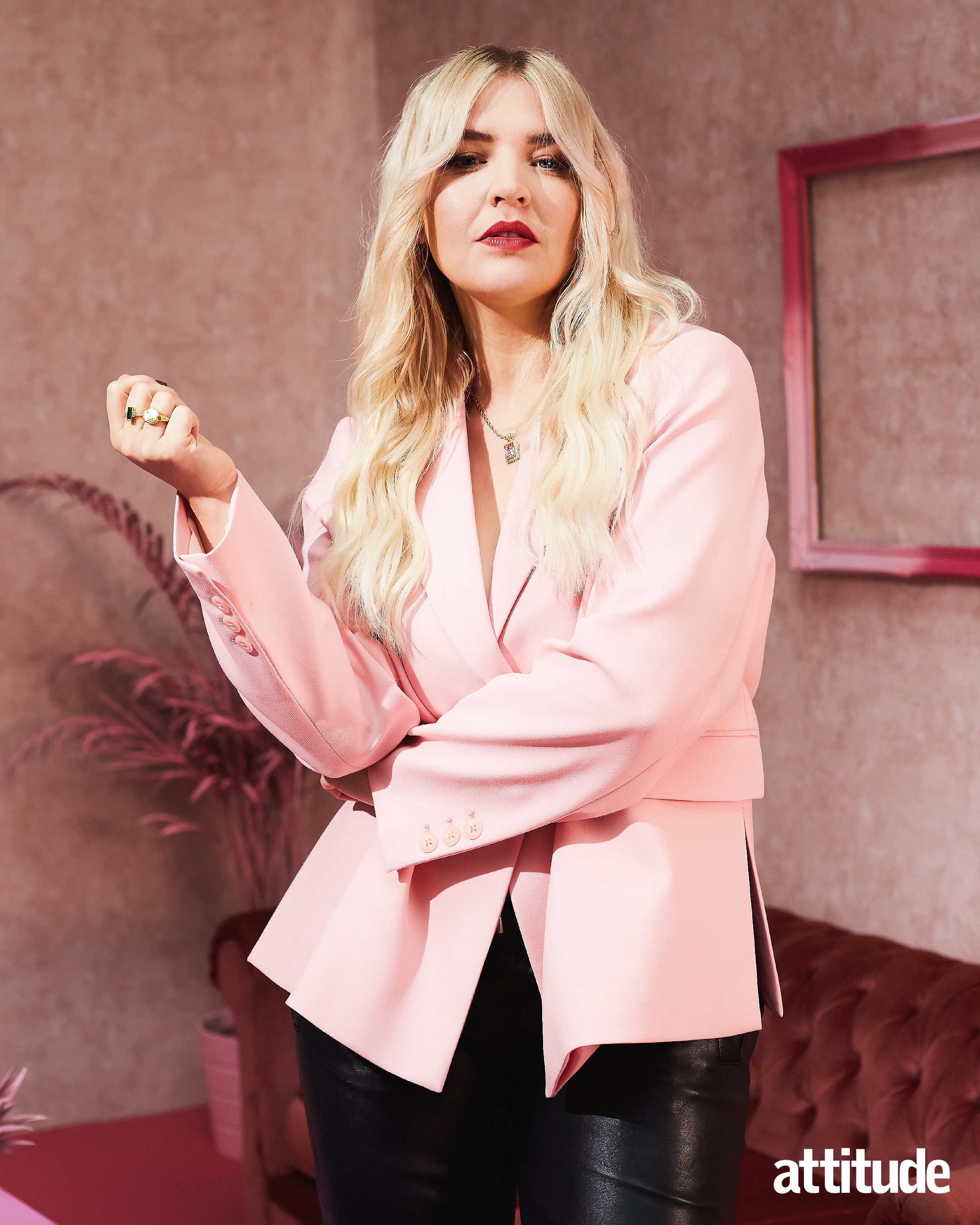
Hair Jake Gallagher at The Only Agency, using Living Proof Makeup Poppy France using Milk Makeup and Kjaer Weis (Photography: Dean Ryan McDaid; Fashion director: Joseph Kocharian)
“We had so much shit from men looking at us and saying shit,” she remembers of her time with her former partner. “All the times we couldn’t hold hands, all the times we couldn’t kiss in public. It felt like such a faff just to be ourselves. It still does. That’s why I guess I’m so open about it now. I’m so keen to educate, to say it’s no different to me dating a man. We need to change that narrative.”
She adds: “I am so proud to be queer and I’m proud to be queer in the way I am, which is that I’m queer, and it’s no big deal.”
Prioritise Pleasure, she states, is a “feminist work” and one which sees her putting a foot down and not letting the negativity which had defined her life to creep back in.
“I am too knackered to be bothered to be worried about all stuff that any more,” she cackles. “I haven’t got any time to be insecure, my self-esteem to be shot, my sense of self to be on a knife edge.
“I’ve got too much other shit to do now.”
Read the full interview in the Attitude December issue, out now.
Subscribe in print and get your first three issues for just £1 each, or digitally for just over £1.50 per issue.
